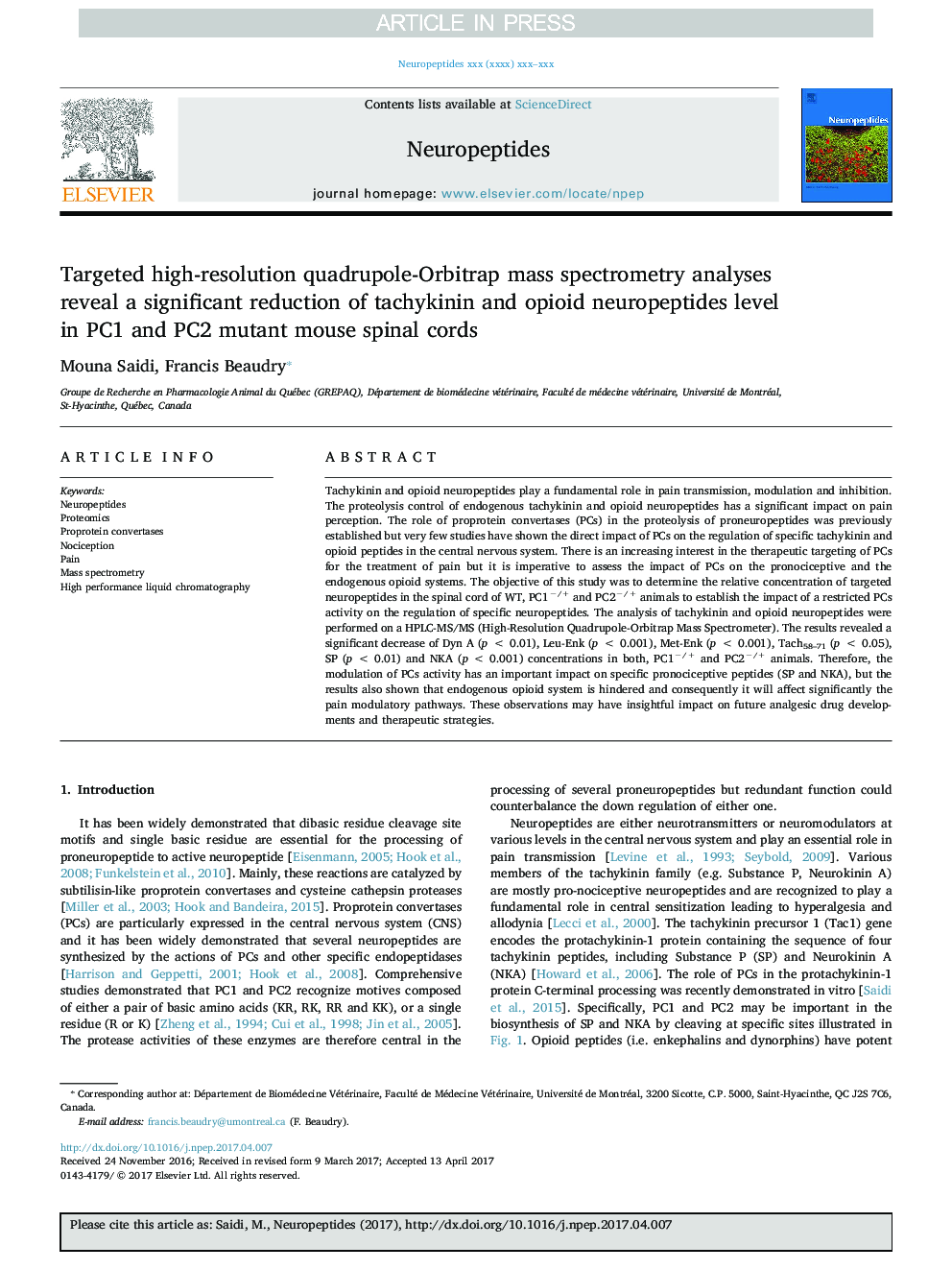| Article ID | Journal | Published Year | Pages | File Type |
|---|---|---|---|---|
| 8633423 | Neuropeptides | 2017 | 8 Pages |
Abstract
Tachykinin and opioid neuropeptides play a fundamental role in pain transmission, modulation and inhibition. The proteolysis control of endogenous tachykinin and opioid neuropeptides has a significant impact on pain perception. The role of proprotein convertases (PCs) in the proteolysis of proneuropeptides was previously established but very few studies have shown the direct impact of PCs on the regulation of specific tachykinin and opioid peptides in the central nervous system. There is an increasing interest in the therapeutic targeting of PCs for the treatment of pain but it is imperative to assess the impact of PCs on the pronociceptive and the endogenous opioid systems. The objective of this study was to determine the relative concentration of targeted neuropeptides in the spinal cord of WT, PC1â/+ and PC2â/+ animals to establish the impact of a restricted PCs activity on the regulation of specific neuropeptides. The analysis of tachykinin and opioid neuropeptides were performed on a HPLC-MS/MS (High-Resolution Quadrupole-Orbitrap Mass Spectrometer). The results revealed a significant decrease of Dyn A (p < 0.01), Leu-Enk (p < 0.001), Met-Enk (p < 0.001), Tach58-71 (p < 0.05), SP (p < 0.01) and NKA (p < 0.001) concentrations in both, PC1â/+ and PC2â/+ animals. Therefore, the modulation of PCs activity has an important impact on specific pronociceptive peptides (SP and NKA), but the results also shown that endogenous opioid system is hindered and consequently it will affect significantly the pain modulatory pathways. These observations may have insightful impact on future analgesic drug developments and therapeutic strategies.
Keywords
Related Topics
Life Sciences
Biochemistry, Genetics and Molecular Biology
Endocrinology
Authors
Mouna Saidi, Francis Beaudry,
